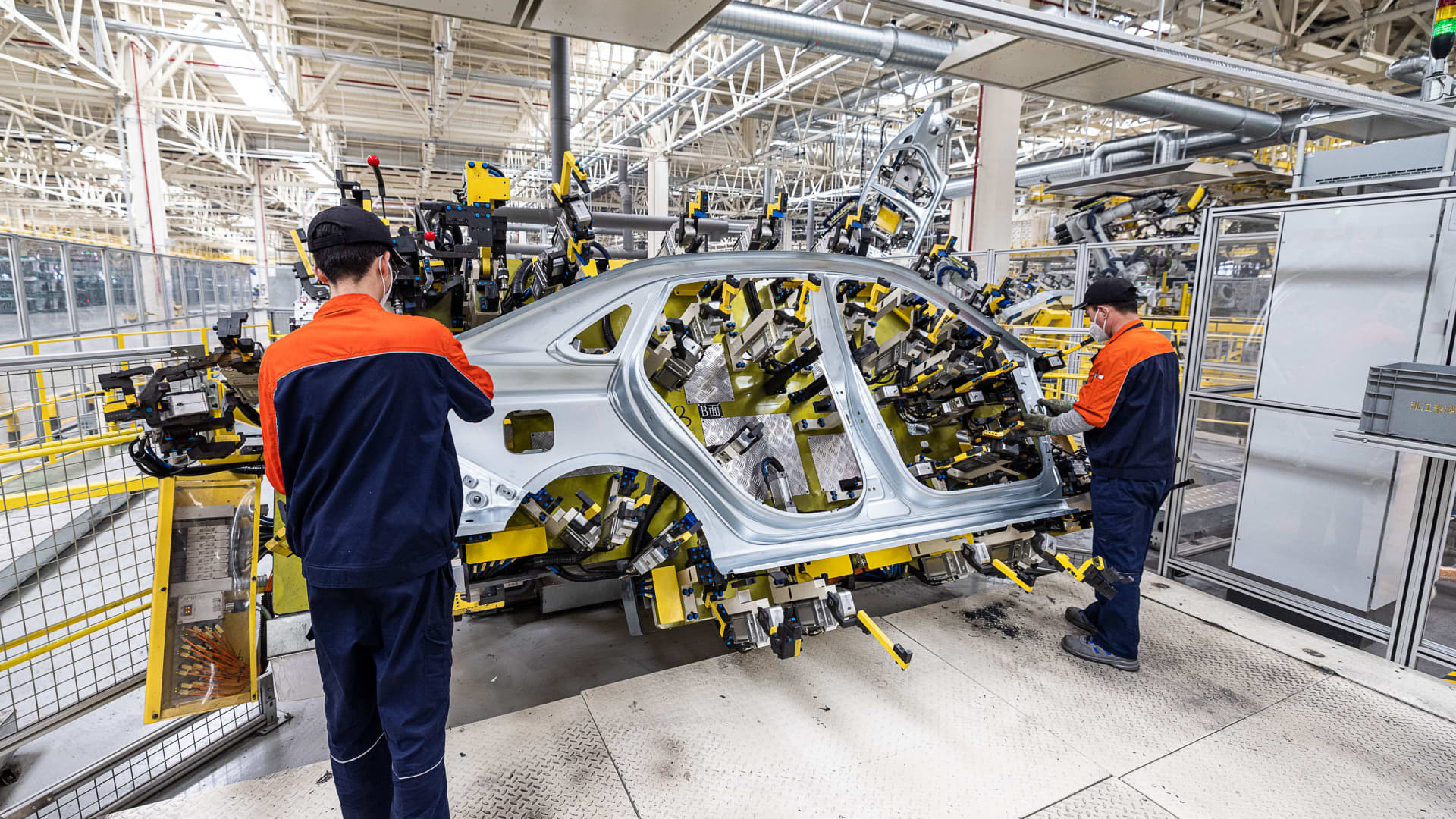BEIJING — China’s latest Covid lockdowns are a greater risk for global inflation today than they were in 2020, Bernstein analysts said.
That’s because the world has become more reliant on Chinese goods since the pandemic began, the analysts said in an April 8 note.
China’s share of exports globally rose to 15.4% in 2021, the highest since at least 2012.
China’s exports have surged in the last two years as the country was able to control the initial Covid outbreak within weeks and resume production, while the rest of the world struggled to contain the virus. China has maintained its zero-Covid policy, while other countries have relaxed controls in the last year.
Over the last several weeks, mainland China has tackled its worst Covid wave in two years with lockdowns and travel restrictions that foreign business leaders have described as tougher than in early 2020. The stay-home orders and virus testing requirements have particularly affected coastal economic centers like Shanghai.
“We believe, the macro impact of China lockdowns could be quite high and something which the market is not yet pricing in,” Bernstein’s Jay Huang and a team said in a report.
Compared to pre-pandemic levels, Shanghai export container costs are five times higher and air freight rates are two times higher, the report said, noting similar strains on supplier delivery time. “Hence, there would be higher export of inflation, especially to China’s large trading partners but at the same time delay China’s own demand recovery.”
Reflecting supply chain disruptions, Chinese electric car company Nio announced production halts over the weekend, with some production resuming Thursday. German automaker Volkswagen said its factories on the outskirts of Shanghai and in the northern province of Jilin remained closed through at least Thursday.
Given that these recent lockdowns are coming at a point when global supply chains are already strained … we believe the impact of this lockdown could be much higher on global inflation and growth outlook compared to what we saw back in 2020.Bernstein
Bernstein’s analysis found that China manufactures the majority of overseas demand for containers, ships, rare earths and solar modules — along with the bulk of mobile phones and PCs.
Chinese factories no longer only complete the final assembly for those electronic products but also manufacture components like LCD panels and integrated circuits, the report said, pointing to faster growth in 2021 in exports of those parts.
China’s first quarter trade data showed steady growth in exports. The country’s producer price index and consumer price index rose faster-than-expected in March, according to data out Monday.
China, a rising car exporter
Since the pandemic began, China has become a significant manufacturer in the auto industry, especially in the electric vehicle supply chain, the Bernstein report said.
The analysts noted how automobile and component exports grew an average 119% in 2021 from the previous year, exceeding the 30% growth in China’s exports overall. The country accounts for roughly 74% of global battery cell production, the report said.
China is the world’s largest auto market and began to promote electric vehicle development and purchases in the last several years, primarily through subsidies. Foreign automakers attracted to the market have accordingly begun to launch electric vehicles for China in the last few years.
Now, Tesla, BMW and other automakers are increasingly making electric vehicles in China to export to other countries, the Bernstein report said. Including fuel-powered cars, Chinese state-owned automakers SAIC and Chery are the top exporters from China of passenger vehicles by volume, the report said, noting growing sales of China-made cars to Chile, Egypt and Saudi Arabia.
While the report did not discuss the specific impact of Covid lockdowns on auto-related supply chains, the analysts pointed out a number of Korean and Japanese automakers faced production disruptions in 2020 when Covid forced Wuhan to lockdown.
In March, passenger car exports rose by 14% from a year ago to 107,000 units, with new energy vehicles accounting for 10.7%, according to the China Passenger Car Association. The report noted the impact of external uncertainties and declines in exports to Europe.
China vehicle exports accounted for around 3.7% of vehicle sales outside the country in 2021, albeit up from less than 2% in the two previous years, the Bernstein report said.
— CNBC’s Michael Bloom contributed to this report.
